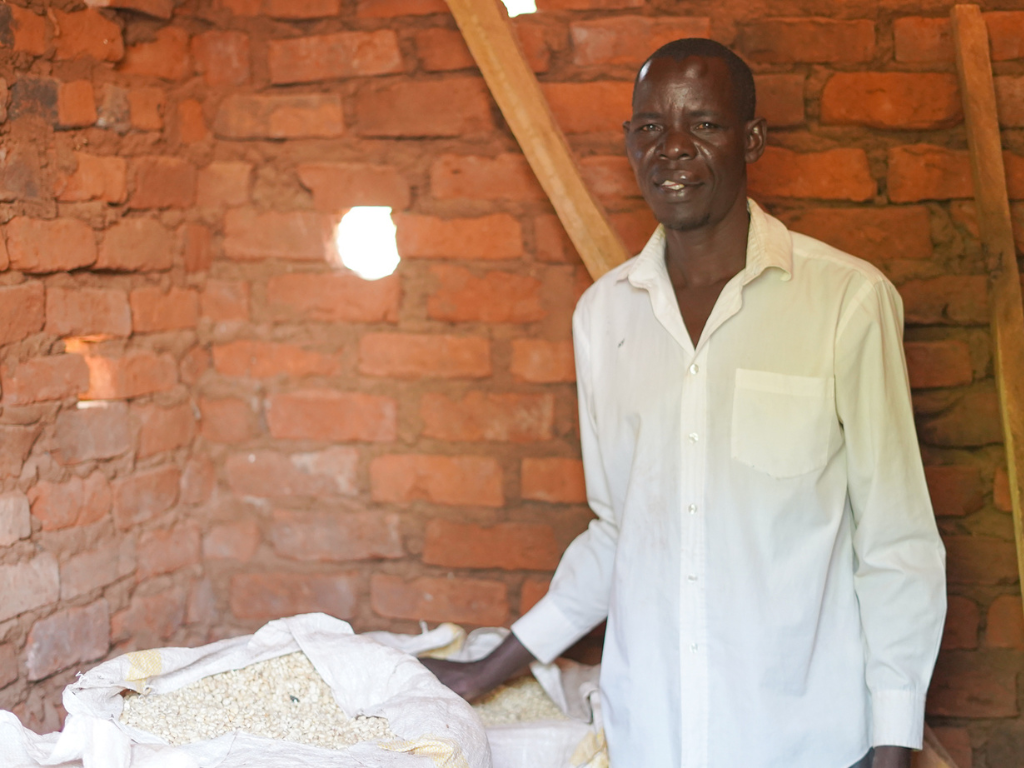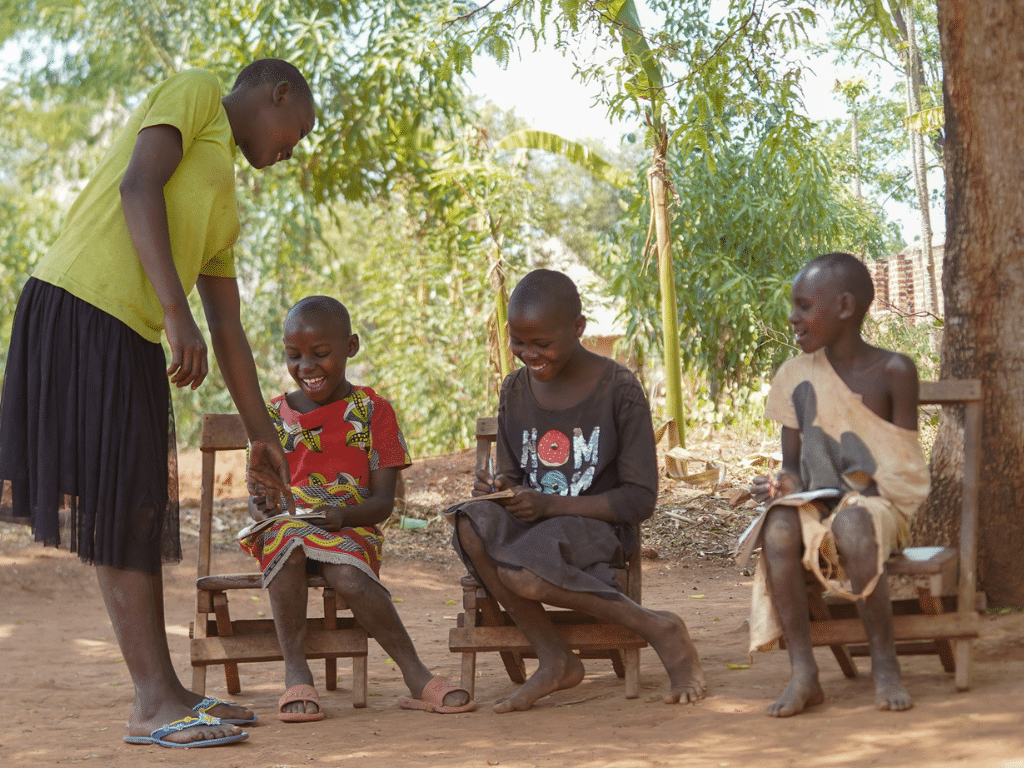Driving Income Through Better Yields

Lastone, a 51-year-old father of 10, lives by Lake Nakuwa, designated as “a wetland of international importance” and a tributary of the river Nile. The primary occupation of his village, Lake Nakuwa village, is farming and fishing, but due to climate change and repeated droughts, the yields from both have been low.
“The sun is very hot here, and if you don’t put in extra effort, you cannot reap anything. We experience hunger throughout the year, and because of that, our children were not going to school,” Lastone said. “The lake in our village is brackish, and the only fish available there are small, which we are prohibited from fishing. In addition, we are periodically struck by droughts, which forces us to seek employment in other districts and fishing areas.”
Irregular weather patterns have been affecting much of the African continent. According to a report, the number of undernourished people has increased by 45.6% since 2012 in drought-prone sub-Saharan African countries. Moreover, over the past 50 years, drought-related hazards have claimed the lives of over half a million people and triggered $70 billion in regional economic losses.
Not one to be disheartened by the setback, Lastone relocated to nearby towns in search of jobs and even tried earning through manual labour work. But his earnings remained meagre and insufficient for his family. This is a familiar pattern for last-mile communities disproportionately affected by Irregular weather patterns – low farm yields, lack of opportunities, and food insecurity.
In 2022, Raising The Village partnered with Lake Nakuwa village’s district – Kaliro, to address ultra-poverty in last-mile communities and build pathways for economic self-sufficiency. Lastone and other members of his community came together to receive improved seeds and tools and learn and adopt Good Agronomic Practices (GAP). This included using modern and improved farming techniques and post-harvest management practices that will enhance yields and increase market value. All aspects of farming inputs and outputs were tracked and measured to ensure that the new practices truly created, impacted and resulted in higher household incomes. Graduating households of Raising The Village’s data-informed program report a rise in average income from $1.03/day to $2.45/day. In addition, families participating in these programs yield 62% more per acre and sell crops at 48% higher market prices than earlier.

Raising The Village provided us with high-quality seeds that were very effective. Despite the scorching temperatures, we could harvest a good yield.” Lastone said. “I planted 6 kgs of maize and harvested 350 kgs. I sold 200kgs for UGX 1500 per kilo and kept 150kgs for household consumption. I used my earnings to support my family and pay school fees for my children.”
Households that benefit from improved incomes through better farming practices are further enabled to form Village Savings and Loan Associations (VSLAs) to pool their savings and re-invest them to pay for necessities, increasing farming input and funding small businesses. Through the VSLA, Lastone bought a pig. He plans to sell piglets when it gives birth, sell them to buy a cow to diversify his income and continue paying for his children’s education. And Lastone’s household isn’t the only one to benefit. Families participating in VSLAs save 26% more every month when compared to peers, with most of them using the savings for school fees and agriculture and business investment.
Raising The Village further ensures that the progress is sustained by helping communities form self-governed committees that provide the technical know-how to other families and monitors the program at the household level by tracking and collecting over 4000 data points on social, economic and other development indicators.
Lastone and his family are just getting started, and they plan to build upon their progress. “We plan to save enough money and buy our own pump to irrigate our garden,” says Lastone’s wife, Beatrice, as she looks upon her children reading books under a nearby tree.
Be part of our journey. Support last-mile communities by supporting Raising The Village.
Let’s Stay Connected

